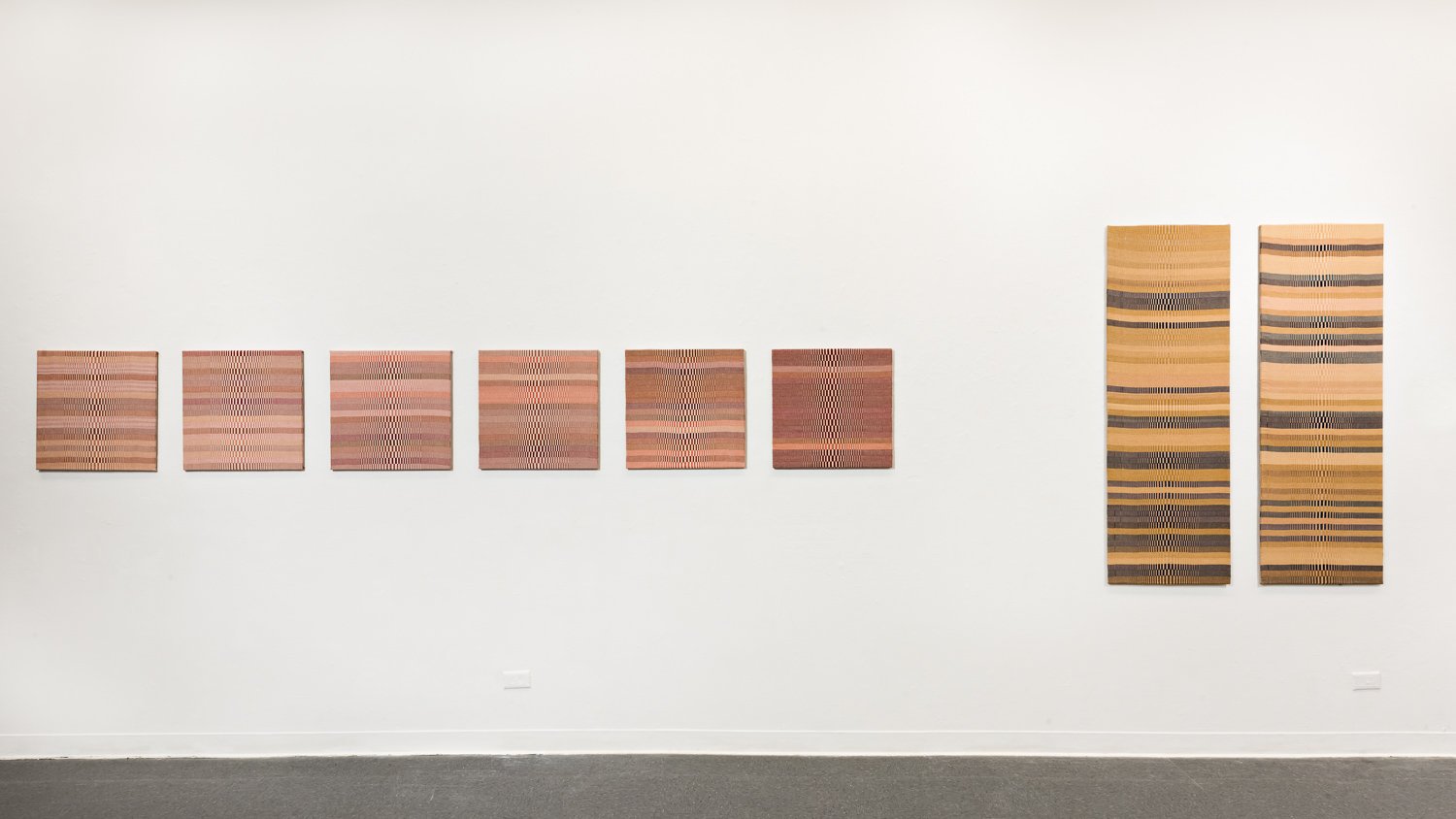Climate Datascapes
I translate climate data from the National Oceanic and Atmospheric Administration into abstracted landscapes and waterscapes, materializing the data with plant-derived fibers and dyes and petrochemical-derived medical tubing and fishing line. These weavings and coiled sculptures merge practices of record keeping with practices of grieving and expressions of scientific research with expressions of lived experience.
This project started in 2015 as an investigation of the mechanisms through which we understand climate crises, from data and journalistic narrative to embodied and affective experience. I viewed the original Datascapes as a critique of data and data visualization. Data is valuable in condensing vast amounts of labor, knowledge, and time into a form that can be consumed quickly. However, its value as an abstraction is also its shortfall. It obscures its material origins and the violence experienced by corporeal and ecological bodies at the hands of anthropogenic climate change. I wove to reinsert the time, labor, materiality, affect, and embodied knowledge that had been stripped away. I wove to draw attention to these limitations and illegibilities, creating a space to reflect on what we do not see, whether that is the injustice of climate change or our personal relationship to a place.
In 2017, the context shifted, and as it did, so did the project’s impetus. Today, we live amidst ever-worsening climate crises: fires, floods, storms, droughts, crop failures, mass extinctions, cancers, Lyme, asthma, and more. Meanwhile, those in power expand fossil fuel extraction, interfere with the production and safekeeping of climate knowledge, and seed divisiveness. This is a politics of erasure within a system of obscured and severed relationships. In response, I look to the history of weaving as a subversive language for women and marginalized groups. In this context, the datascapes are a feminist, material archive of climate knowledge, care, and attention. This is a growing archive that traces multiple forms of entanglement in the face of climate crisis, seeking out and re-weaving otherwise obscured relationships—relationships between climate change, water, extractive industry, illness, and displacement; between disparate places; between personal and communal loss; between corporeal and ecological bodies; and between art, science, and social change.
———











